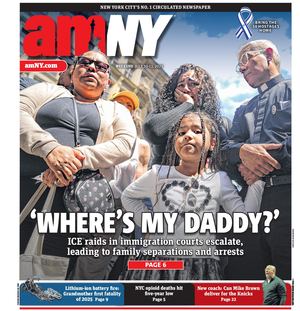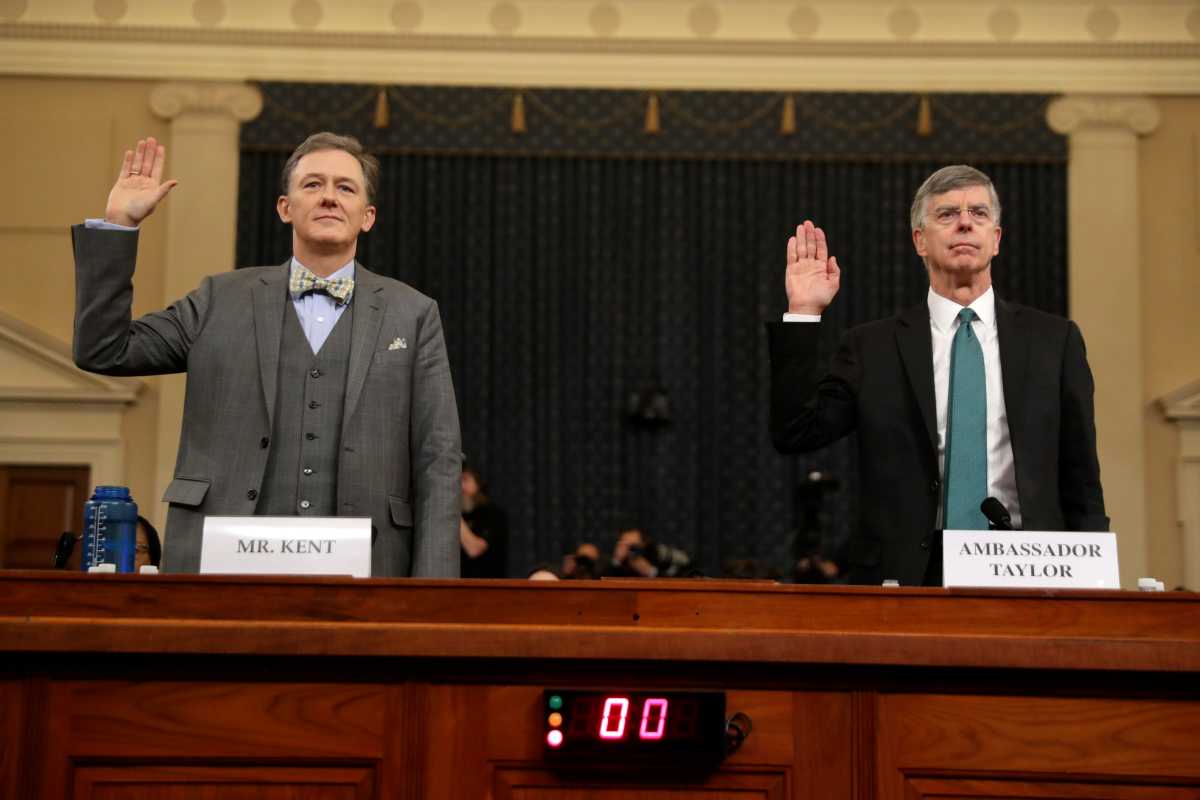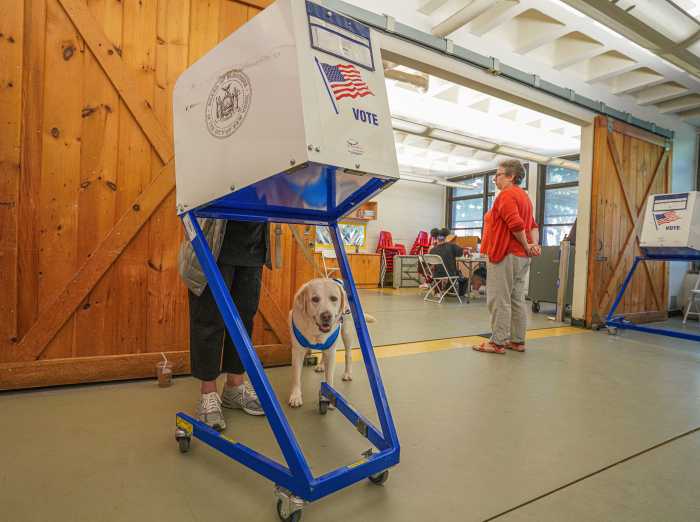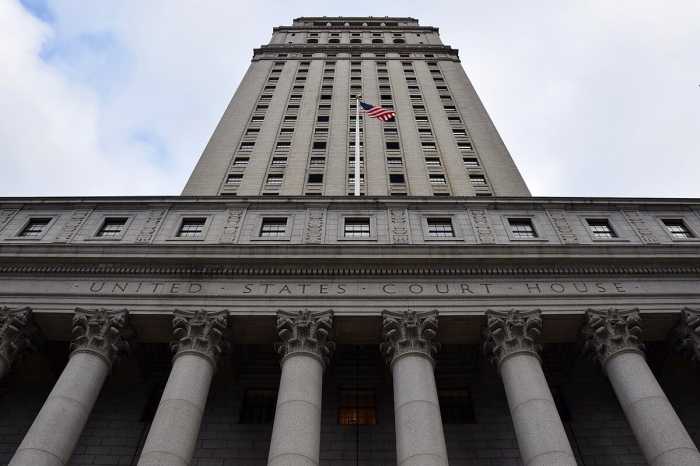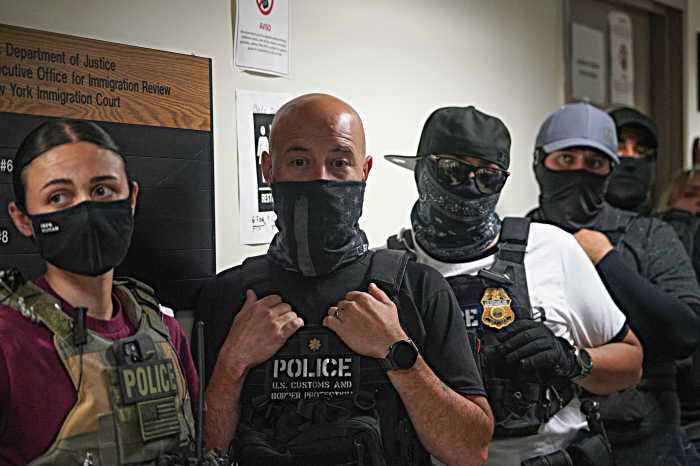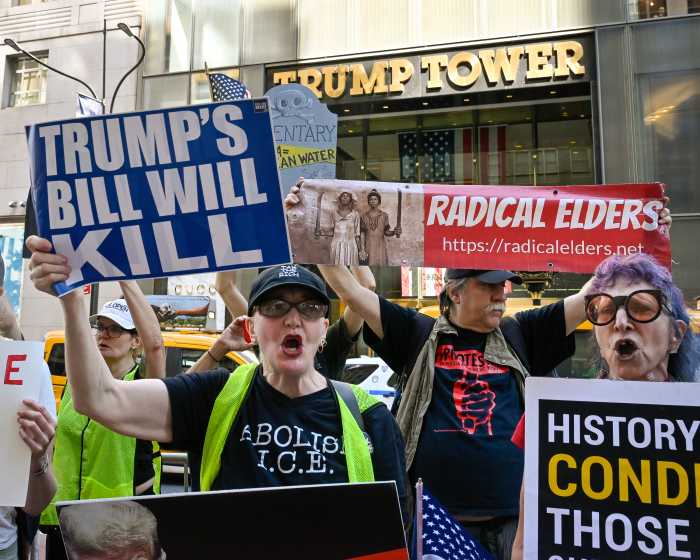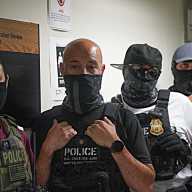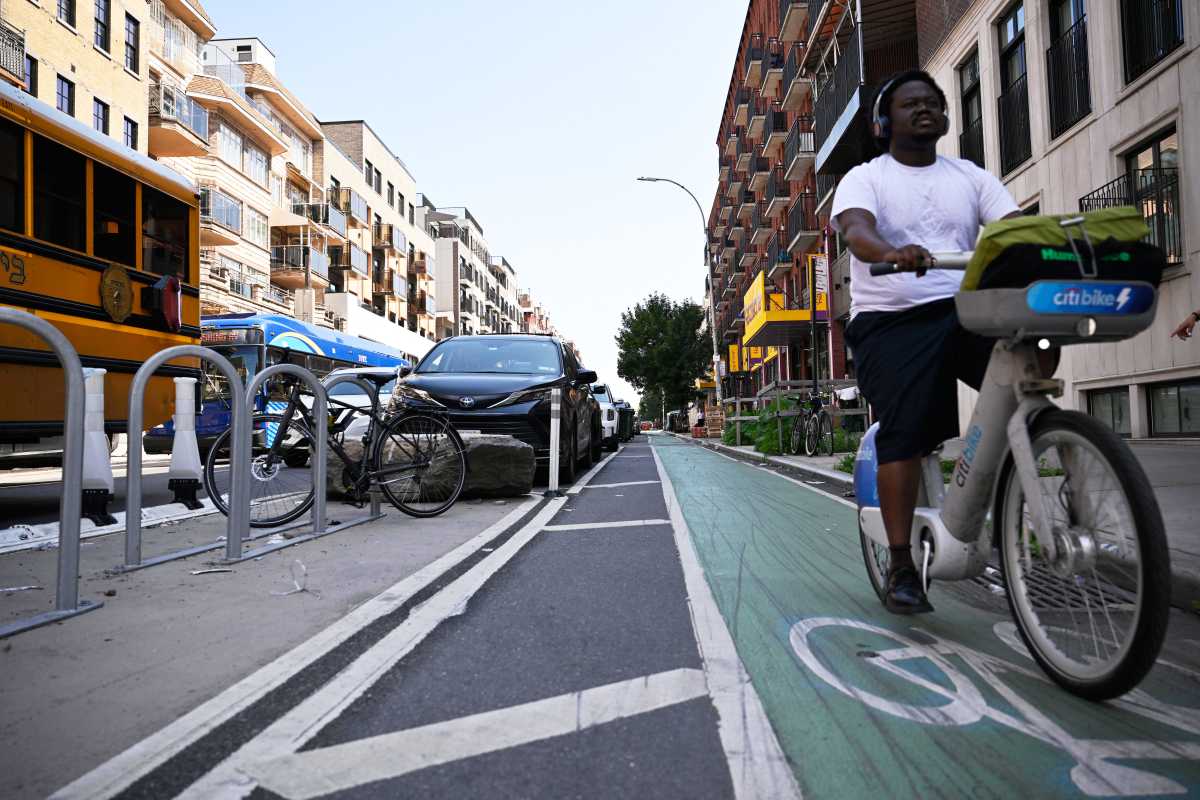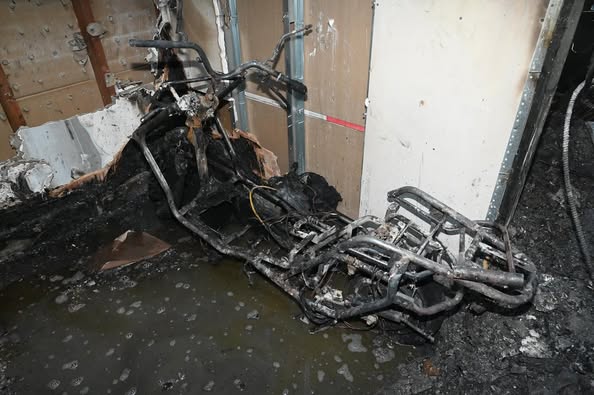For the first time a top diplomat testified Wednesday that President Donald Trump was overheard asking about “the investigations” that he wanted Ukraine to pursue that are central to the impeachment inquiry.
William Taylor, the top U.S. diplomat in Ukraine, revealed the new information as the House Intelligence Committee opened extraordinary hearings on whether the 45th president of the United States should be removed from office.
Taylor said his staff recently told him they overheard Trump speaking on the phone to another diplomat, Ambassador Gordon Sondland, at a restaurant the day after Trump’s July 25 phone call with the new leader of Ukraine that sparked the impeachment inquiry.
The staff could hear Trump on the phone asking about “the investigations,” and Sondland told the president the Ukrainians were ready to move forward, Taylor testified.
The anonymous whistleblower’s complaint to the intelligence community’s inspector general — including that Trump had pressed Ukraine’s president to investigate Democratic foe Joe Biden and Biden’s son and was holding up U.S. military aid — ignited the impeachment inquiry.
As Wednesday’s hearing opened, Republicans lawmakers immediately pushed Democrats to hear in closed session from the anonymous whistleblower.
But Rep. Adam Schiff, the Democratic committee chairman, denied the request at the time but said it would be considered later.
“We will do everything necessary to protect the whistleblower’s identity,” Schiff declared.
Schiff outlined the question at the core of the impeachment inquiry — whether the president used his office to pressure Ukraine officials for personal political gain.
“The matter is as simple and as terrible as that,” Schiff said. “Our answer to these questions will affect not only the future of this presidency but the future of the presidency itself, and what kind of conduct or misconduct the American people may come to expect from their commander in chief.”
It was a remarkable moment, even for a White House full of them. The hearing is the first chance for America, and the rest of the world, to see and hear for themselves about Trump’s actions toward Ukraine and consider whether they are, in fact, impeachable offenses.
Wednesday’s first witness, Deputy Assistant Secretary of State George Kent, said he never heard any U.S. official try to shield a Ukraine company from investigations, directly contradicting a core complaint against Joe Biden being raised by allies of the White House.
Kent said he himself raised concerns in 2015 about the then vice president’s son, Hunter Biden, being on the board of Burisma, a Ukraine gas company. He warned that it could give the “perception of a conflict of interest.” But Kent indicated no one from the U.S. was protecting the company from investigations in Ukraine as Republicans have implied.
“Let me be clear; however, I did not witness any efforts by any U.S. official to shield Burisma from scrutiny,” Kent said.
The career diplomat did not go into detail about the issues central to the impeachment inquiry — Trump’s conversation pressuring the Ukraine government to investigate Democrats and the Bidens — but he voiced his concerns with them
“I do not believe the United States should ask other countries to engage in selective, politically associated investigations or prosecutions against opponents of those in power, because such selective actions undermine the rule of law regardless of the country,” he said.
The top Republican on the panel, Rep. Devin Nunes of California, accused the Democratic majority of conducting a “scorched earth” effort to take down the president after the special counsel’s Russia investigation into the 2016 election failed to spark impeachment proceedings.
“We’re supposed to take these people at face value when they trot out new allegations?” said Nunes, a top Trump ally. He derided what he called the “cult-like atmosphere in the basement of the Capitol” where investigators have been interviewing witnesses behind closed doors for weeks. Transcripts of those interviews have been released.
Nunes called the Ukraine matter a “low rent” sequel to the Russia probe. “Democrats are advancing their impeachment sham,” he said.
The proceedings were being broadcast live, and on social media, from a packed hearing room on Capitol Hill. The country has been here only three times before, and never against the 21st century backdrop of real-time commentary, including from the Republican president himself.
So far, the narrative is splitting Americans, mostly along the same lines as Trump’s unusual presidency. The Constitution sets a dramatic but vague bar for impeachment, and there’s no consensus yet that Trump’s actions at the heart of the inquiry meet the threshold of “high crimes and misdemeanors.”
Trump calls the whole thing a “witch hunt,” a retort that echoes Nixon’s own defense. “READ THE TRANSCRIPT,” he tweeted Wednesday.
At its core, the inquiry stems from Trump’s July 25 phone call with Ukraine’s newly elected president, Volodymyr Zelenskiy when he asked the Zelenskiy for “a favor.”
Trump wanted the Ukraine government to investigate Democrats in the 2016 election and his potential 2020 rival, Joe Biden, all while holding as leverage military aid the young democracy relies on as it confronts an aggressive Russia.
The anonymous whistleblower first alerted officials to concerns about the phone call. The White House released a rough transcript of the conversation, with portions deleted.
Democratic House Speaker Nancy Pelosi was initially reluctant to launch a formal impeachment inquiry. But she pressed ahead in September after the whistleblower’s complaint.
The White House has instructed administration officials not to testify in the inquiry. But over the past month, witness after witness has appeared behind closed doors to tell the investigators what they know.
Most received subpoenas to appear, and both Taylor and Kent had fresh subpoenas Wednesday.
Trump lashed out at the witnesses, tweeting they were “NEVER TRUMPERS,” but the two are career diplomats working for both Republican and Democratic administrations. There’s no evidence they engaged in partisan activity opposing Trump.
Whether Wednesday’s proceedings begin to end a presidency or help secure Trump’s position, it was certain his chaotic term had finally arrived at a place he could not control and a force, the constitutional system of checks and balances, that he could not ignore.
Unlike the Watergate hearings and Richard Nixon, there is not yet a “cancer-on-the-presidency” moment galvanizing public opinion. Nor is there the national shrug, as happened when Bill Clinton’s impeachment ultimately didn’t result in his removal from office. It’s perhaps most like the partisanship-infused impeachment of Andrew Johnson after the Civil War.
— By Lisa Mascaro and Mary Clare Jalonick, Associated Press
